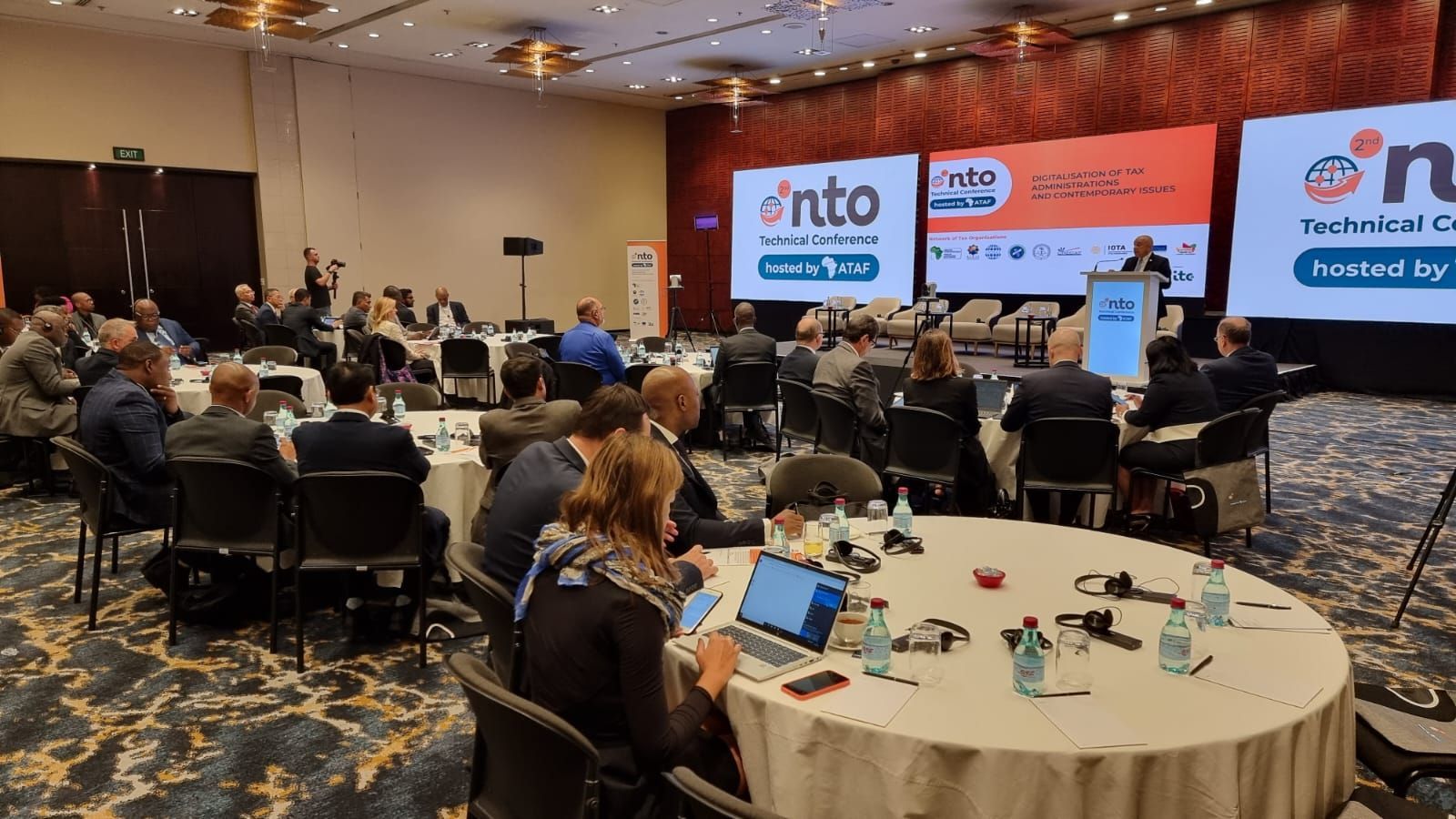Digital Transformation Takes Centre Stage at the 2nd NTO Conference
During the closing session, the NTO Council conveyed its appreciation for the support provided to the NTO secretariat by the BMZ/European Union Commission and NTO members committed to working on the development of its future.

CAPE TOWN, SOUTH AFRICA - Over 350 participants, including the heads and representatives of 10 regional tax organisations that form the Network of Tax Organizations (NTO), convened for the 2nd Technical Conference from 5 to 7 September, under the theme of “Digitalization of Tax Administrations and Contemporary Issues”.
Hosted by the African Tax Administration Forum (ATAF), the conference focused on the digitalisation of tax administration, specifically the challenges and opportunities for the digital transformation of tax administrations; the role of data analytics: and strong Technical and Technology Orientation to deal with issues such as cyber risks and threats facing tax administrations.
The Study Group on Asia-Pacific Tax Administration and Research (SGATAR) was accepted as the 10th NTO regional member to the network which collectively represents over 180 tax authorities around the world.
Logan Wort, Head of the NTO Council and Executive Secretary of the African Tax Administration Forum (ATAF), opened the event: "As a global network, the NTO holds the collective experience in digital transformation to lead, learn from each other and provide support to further the advancement of tax administrations around the world," he said.
Keynote speaker Edward Kieswetter, the Commissioner for the South African Revenue Service (SARS), pinpointed NTO's role as a global platform to jointly advocate for the needs of revenue administration amongst policymakers and other stakeholders.
“A successful digital journey requires clear leadership, an organizational culture open to change, budget allocation, and a focus on customer needs,” said Kieswetter.
“Digital transformation is essential for fiscal integrity. As more transactions become digital and data sources expand, the role of digitalization, coupled with data and artificial intelligence, is crucial,” he added, warning that going digital also presents risks, especially as new technologies can enable criminal activities.
Participants were introduced to various tools and strategies for achieving seamless and frictionless tax administration. "It is only through strategic clarity, a compelling vision, and a shared purpose that the digitalisation journey can be successful," emphasised one presenter.
While “digitalization”’ is a buzzword in the realm of tax reform, administrations must exercise caution in their transformation, said Mr. Wilson Prichard, Executive Director at ICTD.
"A fundamental challenge of digitalisation exercises is the fact that we often define the goals of digitalisation exercises as being digitalisation itself as reflected in the implementation of new IT systems. But those aren't the kinds of impacts ultimately needed by reform.”
Joy Waruguru Ndubai, a Research and Teaching Associate at the Institute for Austrian and International Tax Law, emphasised that digitalisation wasn't merely about embracing technology, "Digitalisation is not just about technology; the human element is paramount” He stated.
The transformative role of technology in reshaping tax compliance was spotlighted, emphasising the gains from e-filing and advanced data collection methodologies.
Emerging technologies were also discussed, with a focus on enhancing data management and analytics. "The success of the application of new technologies is dependent on high-quality data," the conference noted.
During the closing session, the NTO Council conveyed its appreciation for the support provided to the NTO secretariat by the BMZ/European Union Commission and NTO members committed to working on the development of its future.
Delegates recognised the necessity for closer cooperation and knowledge-sharing between global tax authorities. The NTO was tasked with playing a more significant role in the digital transformation of tax administrations internationally.
The hybrid conference brought together over tax stakeholders from over 100 countries including policymakers, high ranking officials from tax administrations and Ministries of Finance; tax administration reform divisions; taxpayers service section officials; auditors; IT experts of tax administrations; risk management offices of tax administrations; and, development partners interested in contributing to the works of the NTO and its members.
The NTO is a network of 10 regional and international tax organisations. It supports the capacity of NTO member organisations and their member tax administrations by fostering international collaboration and dialogue on tax issues for effective domestic resource mobilisation (DRM).










